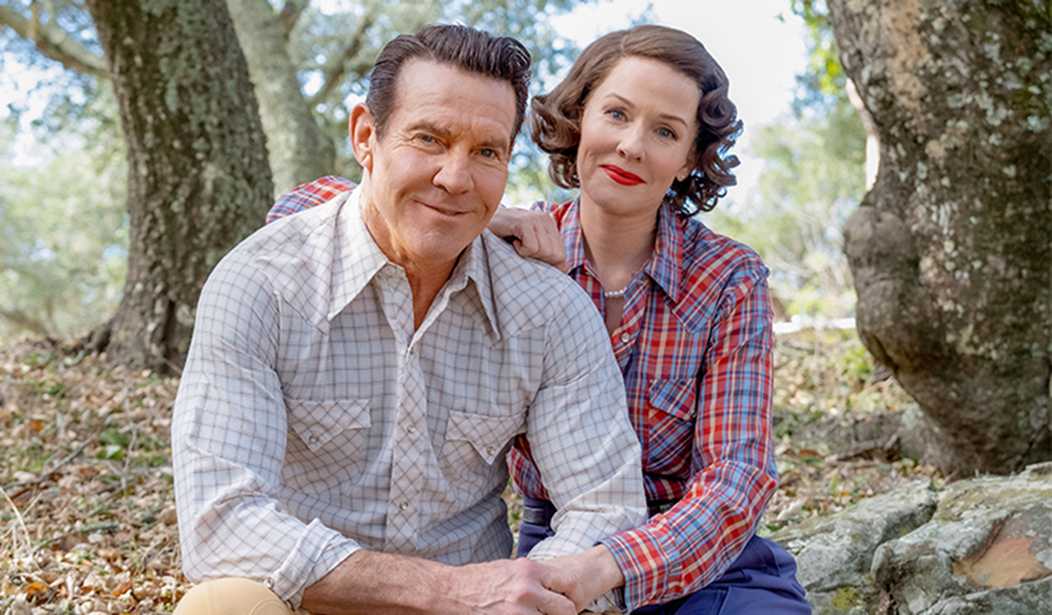The phrase “Let’s Make America Great Again,” now firmly linked to Donald Trump, was first popularized by Ronald Reagan during his 1980 presidential campaign. The recent film Reagan, directed by Sean McNamara and based on Paul Kengor's The Crusader: Ronald Reagan and the Fall of Communism, provides a compelling look back at this era. Starring Dennis Quaid as Reagan, the film highlights a presidency marked by a confident and clear vision for the country. Reagan’s landslide victory in 1980 was emblematic of a public yearning to restore an idealized version of American greatness.
Today, amid a politically fragmented landscape, Reagan is a poignant reminder of when national ambitions appeared more unified and straightforward. The film’s portrayal of Reagan’s era underscores a significant realization: the core aspirations of Reagan’s presidency resonate strikingly with today’s political climate, albeit with one crucial difference. While Reagan’s vision for America was clear, focused on domestic prosperity and defeating communism, today’s challenges include a complex web of leftism, globalism, and mass immigration that has reshaped the American landscape.
Reagan effectively captures the essence of the 1980s, with Quaid's portrayal offering an authentic glimpse into the period. The film accurately reflects the demographics of the time—primarily white (80%), contrasting sharply with today’s more diverse America (60%). This portrayal is not a critique of diversity but a reflection of historical accuracy, highlighting how the American identity and political landscape were changed. The critical distinction between Reagan’s era and today’s America is the profound impact of mass immigration and globalism, which some analysts have linked to the Cold War’s outreach. During Reagan's presidency, the country was less diverse, and different standards shaped the social and political landscape.
Recommended
In contrast, today’s environment has been significantly influenced by globalist policies and large-scale immigration, transforming America’s political discourse. Reagan’s presidency was defined by his staunch anti-communist stance and efforts to reduce government intervention in the economy. The film vividly portrays his Cold War leadership, famous “Evil Empire” speech and military decisions, and the Strategic Defense Initiative (SDI). Reagan’s economic policies, particularly his tax cuts and efforts to reduce government interference, resonated with many Americans, reflecting a desire for prosperity.
However, the portrayal of Reagan’s era must be viewed through the lens of how the landscape has changed since then. The fall of communism did not signal the end of ideological battles; instead, it led to a subtle yet pervasive shift in how these conflicts were waged. The retreat of militant communism allowed for a different ideological confrontation to emerge—one that manifests through errant wars, economic policies, and mass immigration. These strategies have shifted the political balance to influence American values in ways Reagan’s era did not foresee.
The subtlety of this ideological shift can be seen in the transformation of American schools, media, and public discourse. The infiltration of globalist ideas and the impact of mass immigration have fundamentally altered the political and cultural landscape, often without the level of public debate or media attention that characterized earlier political battles. This shift has been part of a broader strategy to reshape American identity and values, challenging the principles Reagan championed. While the film does not explicitly address these contemporary issues, comparing his clear vision with today’s complex political environment highlights a critical point. The struggle against globalist policies and mass immigration is not just about policy differences but a fundamental shift in America’s national identity.
Reagan’s final segment explores his presidency, which is marked by a commitment to smaller government, lower taxes, and a robust stance against communism, which continues to influence political debates today. The film invites viewers to reflect on how Reagan’s vision has endured and evolved in the face of contemporary challenges. As we consider the contrast between Reagan’s era and today’s political climate, it becomes evident that the core ideals of his presidency—individual liberty, economic freedom, and national strength—remain relevant. However, our methods and challenges must evolve, with globalism and mass immigration playing central roles in shaping today’s discourse.
In summary, Reagan serves as both a historical recounting and a reflection on the enduring legacy of American patriotism. The film’s portrayal of his leadership and the historical context of his era provide valuable insights into the aspirations and challenges of his time. As we navigate the complexities of modern politics, Reagan’s vision remains a touchstone for understanding the ongoing ideological battles about defining and redefining American greatness.
























Join the conversation as a VIP Member